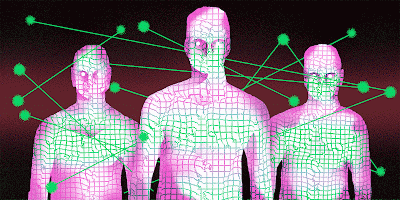Opinion European Union The EU must retreat to survive
For both pragmatic and democratic reasons, it would be lunacy to sue the German government
GIDEON RACHMAN MAY 18 2020
Anybody who has worked in Brussels will be familiar with the bicycle theory of European integration. The idea is that unless the EU keeps moving forward, it will fall over and crash. But the bicycle theory is dangerously out of date. To survive, the EU actually needs to find a brake and a reverse gear. The alternative is a potentially fatal collision between the EU’s institutions and its nations. The chances of conflict have risen dramatically following a German constitutional court ruling that places Germany in direct confrontation with both the European Central Bank and the European Court of Justice.
The German court, based in Karlsruhe, ruled that the ECB’s bond-buying programme — which has helped keep the European single currency afloat — failed a “proportionality test” by not taking into account its broad economic effects. It also stated that the ECJ had been acting beyond its authority, when it declared the ECB’s bond-buying legal. Ardent supporters of the EU have reacted with horror to the German court’s actions. Some have argued that the Karlsruhe ruling has “put the entire EU legal order in jeopardy” and that the European Commission must respond with “infringement proceedings” — in other words, take Germany to court.
My own view is that, for both pragmatic and democratic reasons, it would be lunacy for the EU to sue the German government. Germany is the biggest country in the EU and the largest contributor to its budget. The EU cannot be built in opposition to its member states — least of all Germany. The club can survive Brexit. But without Germany, there would be no EU. Opinion polls in Germany suggest that the constitutional court is the most respected institution in the country.
The Bundesbank is also traditionally regarded as a key guardian of Germany’s postwar democracy — and a guarantee that the hyperinflation of the Weimar Republic years will never return. For the EU to humble two of the most important pillars of Germany’s postwar stability would invite a public backlash. If Germany was behaving in a fundamentally undemocratic manner, then this kind of fatal confrontation might be an unavoidable obligation. But, while it is possible to dispute both the economic and the legal logic behind the Karlsruhe ruling, there is no suggestion that the court has acted in an undemocratic or improper manner.
The EU view is that the ECJ is the higher court and outranks Karlsruhe. But, if the EU starts infringement proceedings, the dispute between the ECJ and Karlsruhe would be arbitrated by the ECJ itself — a circular situation that would instantly undermine the moral force of its ruling. It is true that letting the Karlsruhe court ruling stand is not a trivial matter. At worst, it poses real risks both to the survival of the euro and to the EU’s efforts to remain a club of liberal democracies.
Hungary and Poland — whose governments are rapidly eroding their national democracies — have both seized upon the Karlsruhe ruling to justify their own efforts to ignore EU law. It was predictable that the Hungarian government, led by Viktor Orban, would react in this way. But Mr Orban is an unscrupulous character who — much like the US’s Donald Trump — will use any argument, however spurious, to justify what he was going to do anyway. In reality, the Hungarian and Polish cases are very different from that of Germany. The governments in Warsaw and Budapest are genuinely undermining the independence of their courts.
By contrast, the Karlsruhe court has demonstrated its freedom from political influence, with a ruling that is highly inconvenient for Berlin. EU infringement proceedings against Hungary and Poland are justified, given that their democratic institutions are genuinely under threat. But, in the long run, the fate of Hungarian and Polish democracy will be decided within those two countries, not by Brussels.
The Karlsruhe ruling also has dramatic implications for Europe’s single currency. It is widely believed the economic shock caused by Covid-19 means that continued radical action by the ECB is the only thing that stands between the EU and another debt crisis. If the German courts tie the hands of the ECB (or prevent the Bundesbank participating in ECB programmes), then the survival of the euro might be in question. But there should be a democratic way out of this. German opponents of the Karlsruhe decision argue that the judges reflect only a small conservative faction, within their country.
If that is true, it is open to Berlin to try to amend the German constitution or the EU treaties, to make it absolutely explicit that the ECB’s actions are legal. If Berlin cannot win that argument at home — or in the wider EU context — then Germany may have to consider leaving the European single currency. Even raising that issue could provide a helpful clarity. It might persuade the Germans that the ECB’s actions are not so unacceptable, after all. Or it might persuade Berlin’s European partners that they need to do more to respect German misgivings about the management of the euro. That kind of fundamental debate is overdue.
The EU’s survival cannot be secured simply by pedalling the federalist bicycle ever harder. The direction of travel also needs to be reassessed, debated and agreed.
gideon.rachman@ft.com
Link originale: https://www.ft.com/content/22febd2a-98e0-11ea-adb1-529f96d8a00b















